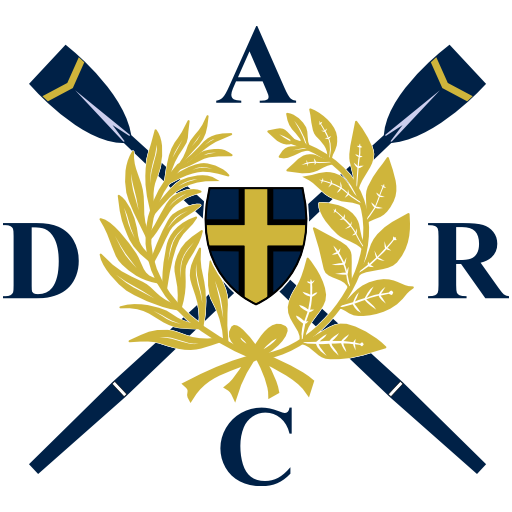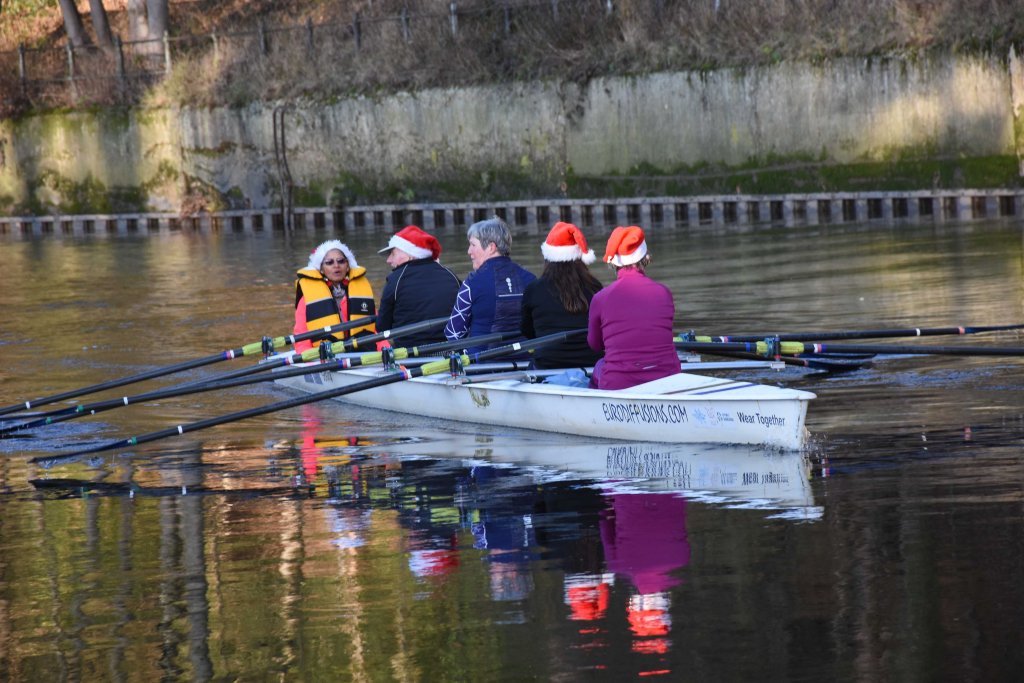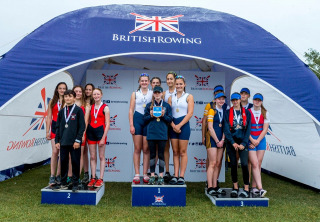The passing of another year, and depending on your point of view, another decade, allows for some reflection on what has passed and what is yet to come.
Although successful 2019 has been a mixed year, with only 2 out of 6 competitive events scheduled on the River Wear actually taking place, Durham Regatta, Durham Long Distance Sculls and Autumn Small Boats Head being cancelled because of elevated river levels and Durham Autumn Sprint Regatta being unviable due to a shortage of suitable entries.
In fact 2019 has been a difficult year all round for cancellations, notably the South Yorkshire Head, Ponteland Junior Head, Women’s Eights Head, the Junior Inter Regional Regatta and York Autumn Sculls and SBH all hit by bad weather, while Tyne Regatta and the Head of the Don failed to take place due to receiving insufficient entries. In February Durham SBH went ahead, but only after surviving a weather scare which led to many entries being scratched. The Schools’ Head and Fullers Fours Head on the Thames went ahead with reduced numbers after entries were culled by the organisers in response to forecast difficult conditions.
Oversubscription of competitions was another recurring theme, with many potential competitors thwarted after being too slow off the mark when submitting their entries, Durham LDS and Rutherford Head being among those affected.
Despite the difficulties DARC achieved greater success in competitive events during 2019 than in the previous year, with 126 wins in 28 competitions out of around 40 entered, distributed between the Junior, Senior and Masters squads. Masters fared best with 63 wins, Juniors winning 45.
The club has had a strong tradition of performance in Masters competition over the past decade and beyond, illustrated by the most successful competitors this year once again coming from Masters – Gill Prescott gaining 11 victories including several in regional and national competitions, Paul Rutter winning 12 events and John Appleby 13 including 3 at the World Rowing Masters Regatta in Hungary and 2 at the British Rowing Masters Championships at Strathclyde Park. Several victories went to John Appleby and Micky Stevens in the MasG 2x and to Paul Rutter and David Heppell in the MasE 2x. DARC also claimed the Masters Victor Ludorum Award at the Long Distance Sculling Series, and there were 9 wins including doubles, quads and eights and a Championship bronze medal for Gabrielle Moore.
The Junior squad enjoyed a successful Easter training camp in Banyoles in Spain which was followed by some good performances over the regatta season, four entries at the National Schools’ Regatta, and the highlight being the J14 girls winning two bronze medals at the British Rowing Junior Championships at Nottingham in July. The J16 girls and boys quads also had a good season and successes for the J15 girls eight included the Head of the Trent at Nottingham, plus some outstanding performances against senior opposition. The J13 squad shows good promise for the future, winning at Durham, Hexham and Talkin Tarn.
The seniors entered a double at Henley Women’s Regatta in June, then won the Open eight, quad and pair, and the women’s four, at Talkin Tarn, as well as open and women’s singles. The senior men won the Open 8+ at the Boston Marathon with the second fastest time overall and senior men’s and women’s crews entered the Fullers Head of the River Fours in London in November.
Hope Cessford was selected for the Great Britain under-23 squad, winning a gold medal with the Women’s coxless four at the World Championships in Florida in July. Another DARC junior alumnus James Snowball won a bronze medal with the GB men’s eight at the European under-23 Championships in Greece in September.
The Sunday League was less well supported than in previous years but a highlight of the series was the return of competitive rowing to Ebchester in August for the first time since 1974. DARC also provided 2 crews for the Great Tyne Row. The recreational rowers celebrated the festive season with a Santa Row on December 22nd. Anyone is welcome to go along to the recreational sessions each week on Monday and Thursday mornings.
Social events have been well received by the public, notably the classic car rally and fireworks party, while quiz nights have gone down well with members. The proposed gin & rum party was a victim of the Durham Regatta cancellation.
With an already packed schedule enthusiasm for more competitive events continues. Following a successful trial the inaugural Derwentwater Head is an addition to the Northern calendar on March 7th 2020. The Club’s first competition of the New Year is Durham Small Boats Head on February 1st.
As always events rely heavily on volunteers who at times can be hard to come by. Is there a need for a rethink as to the nature and number of events? Perhaps this is something that can be discussed at the Northern Regional Conference at DARC on Sunday January 26th. There continues to be a great need for volunteers and we are most grateful to the staff and volunteers who enable the club to function.
As a new year approaches the ongoing sedimentation of the river is a concern that needs to be addressed if competitive rowing is to continue on the River Wear in Durham. For several years the directors and committee of Durham Regatta have been dutiful in their efforts to bring about a sustainable solution to manage the situation and it is hoped that there will soon be meaningful progress.
Best wishes for a successful 2020.



